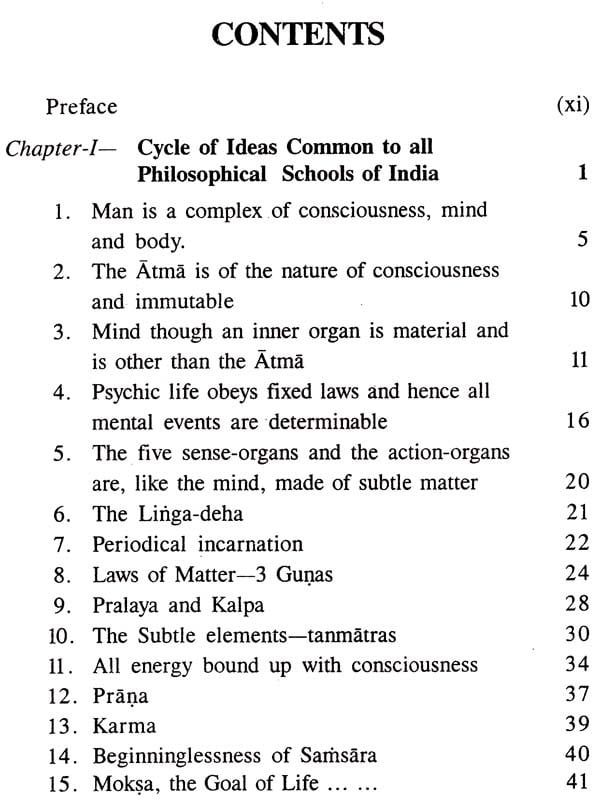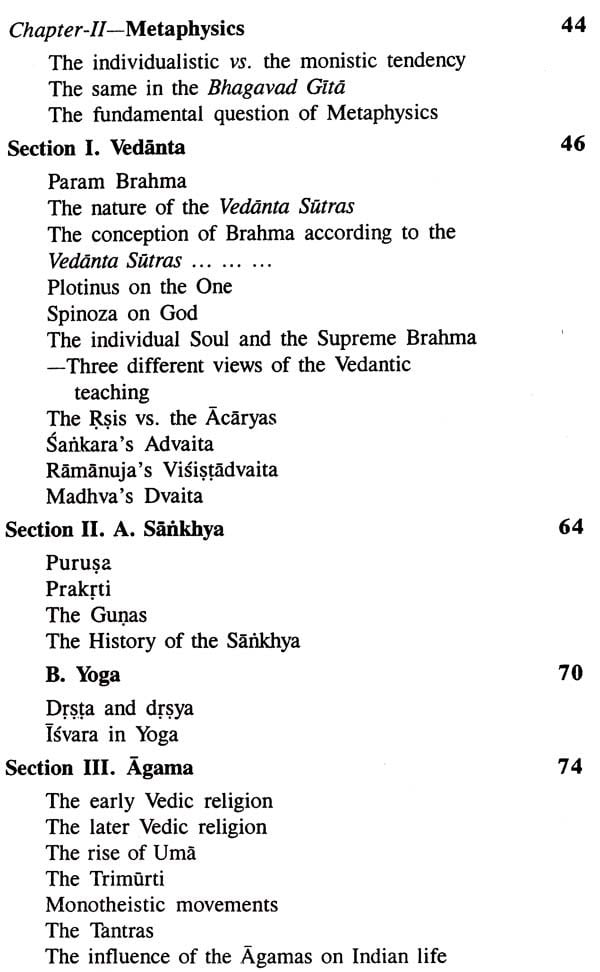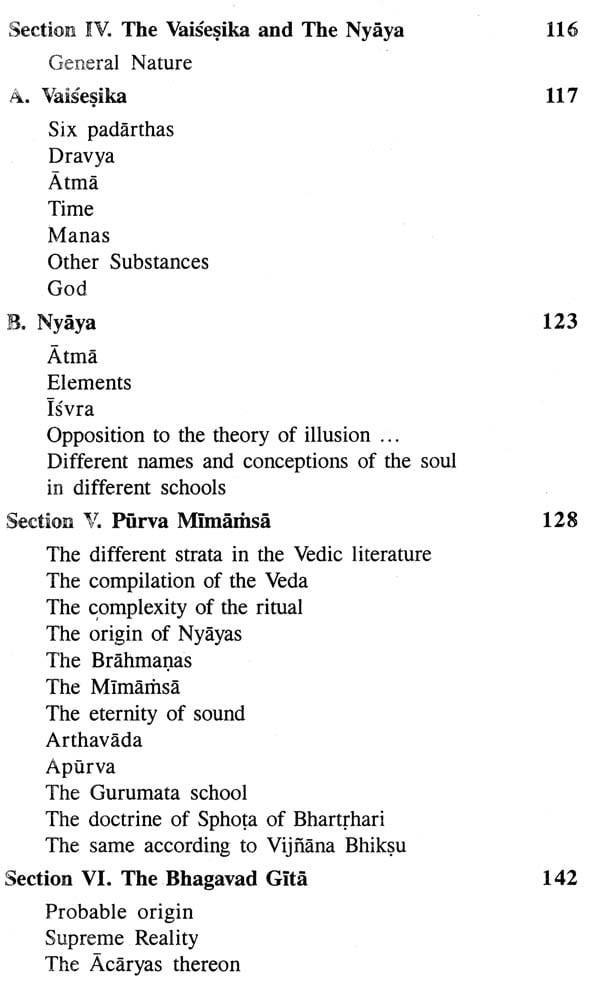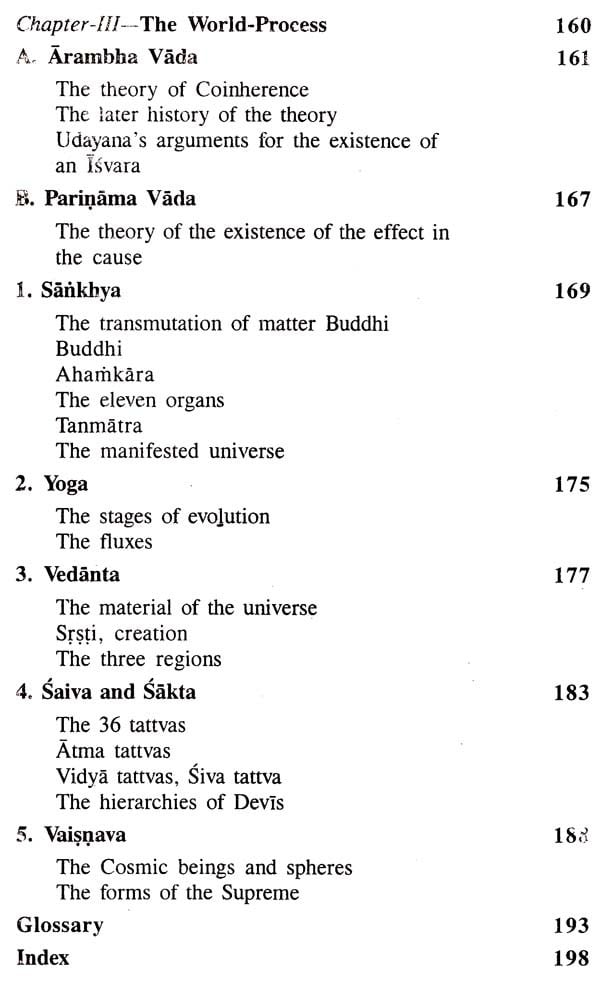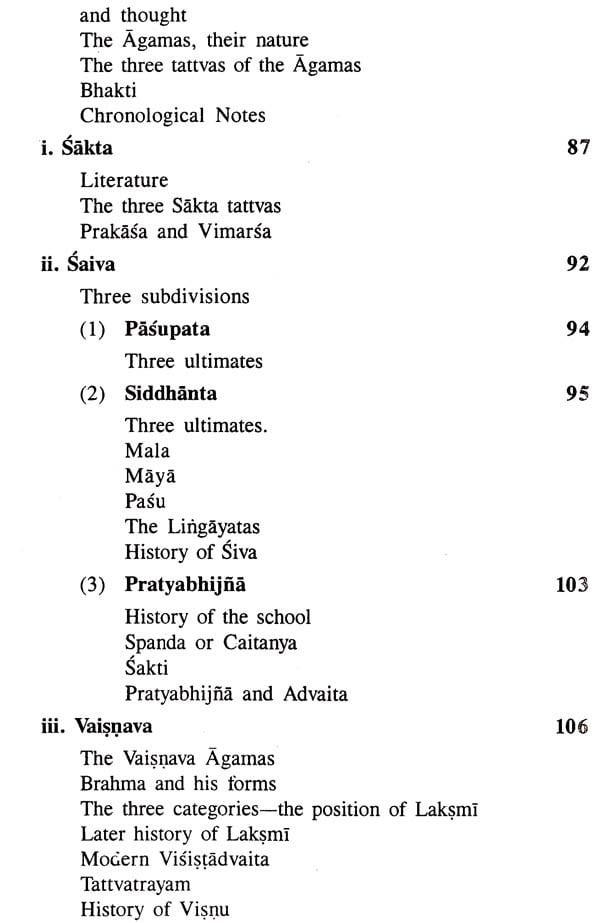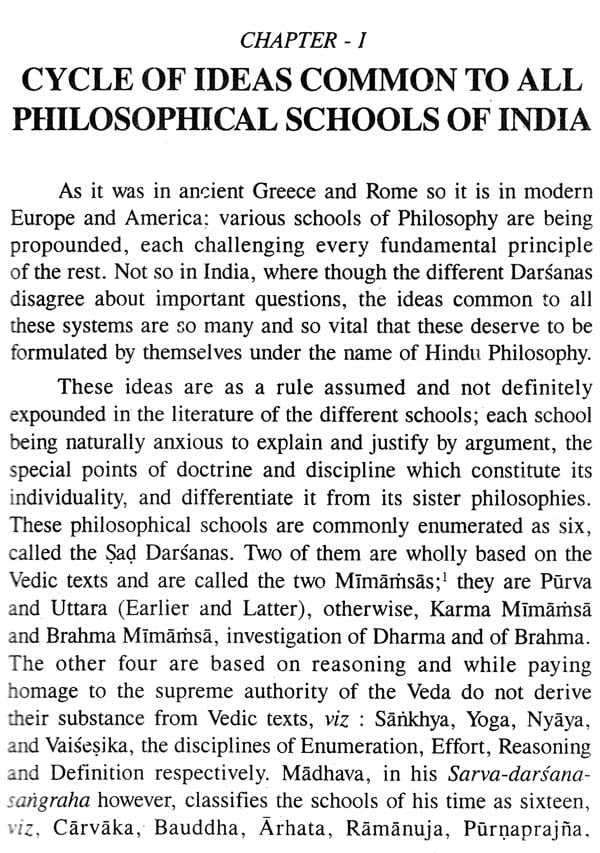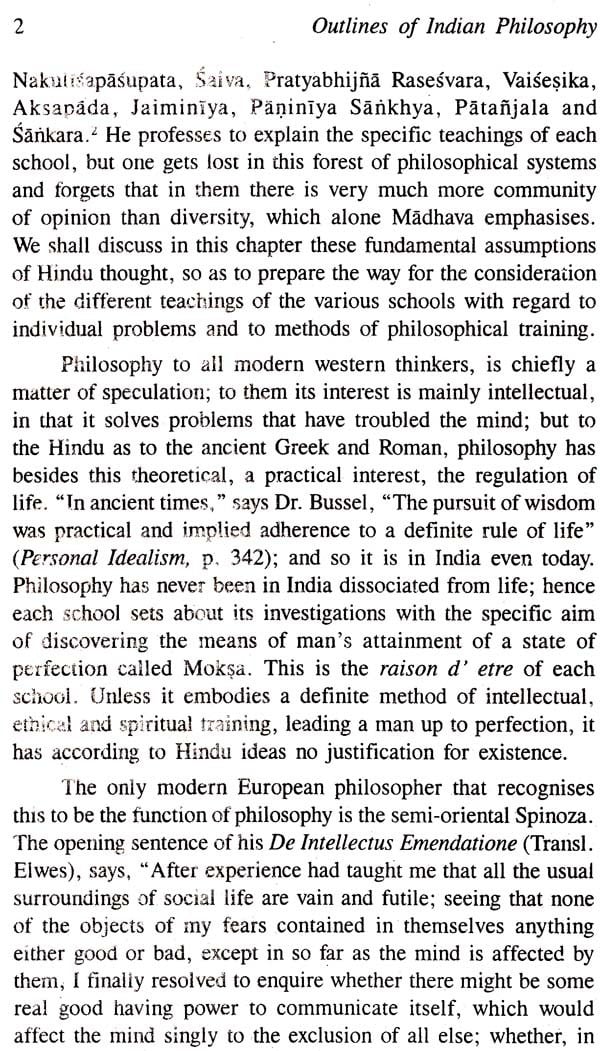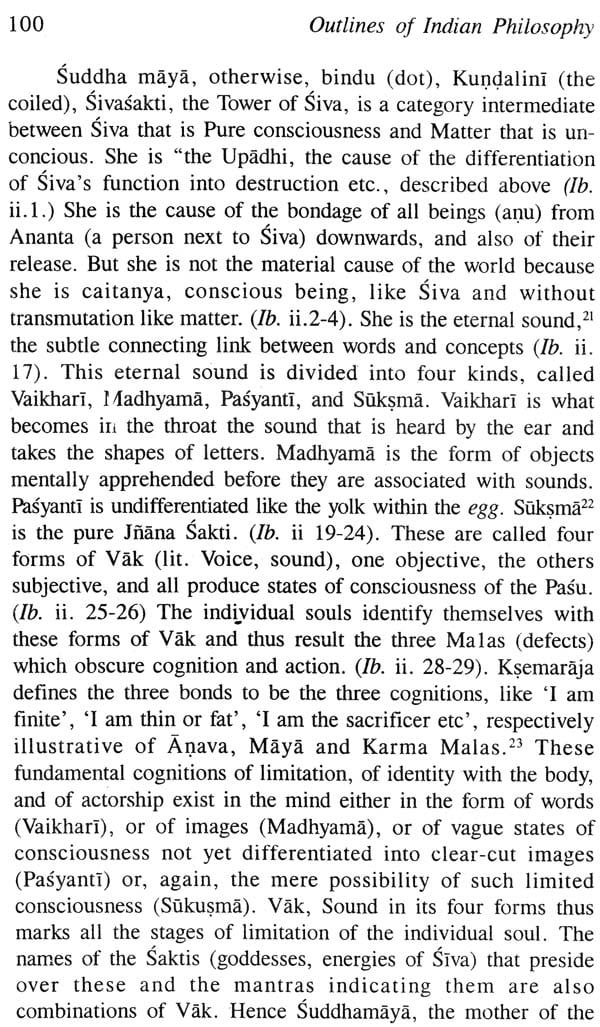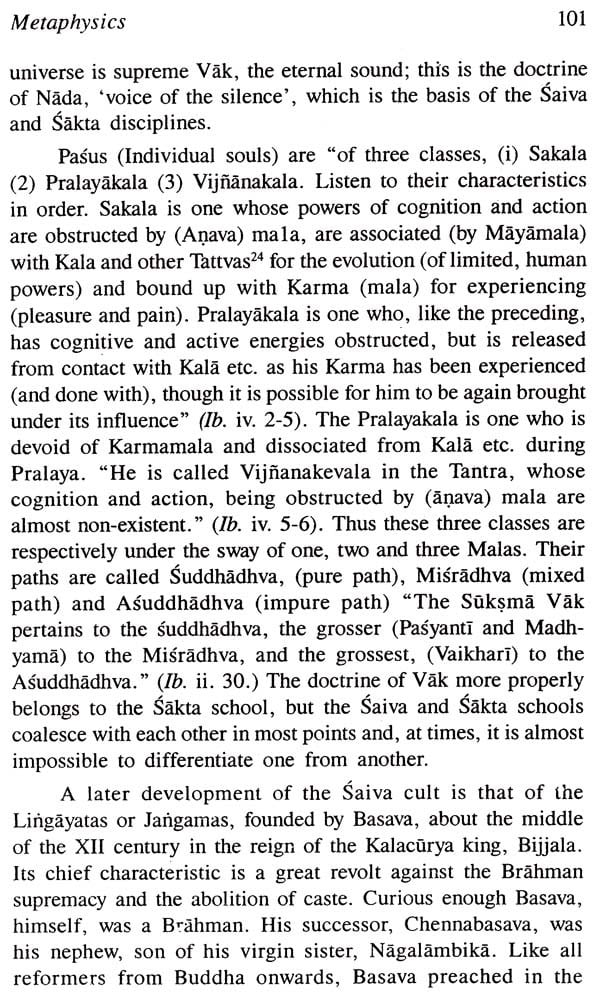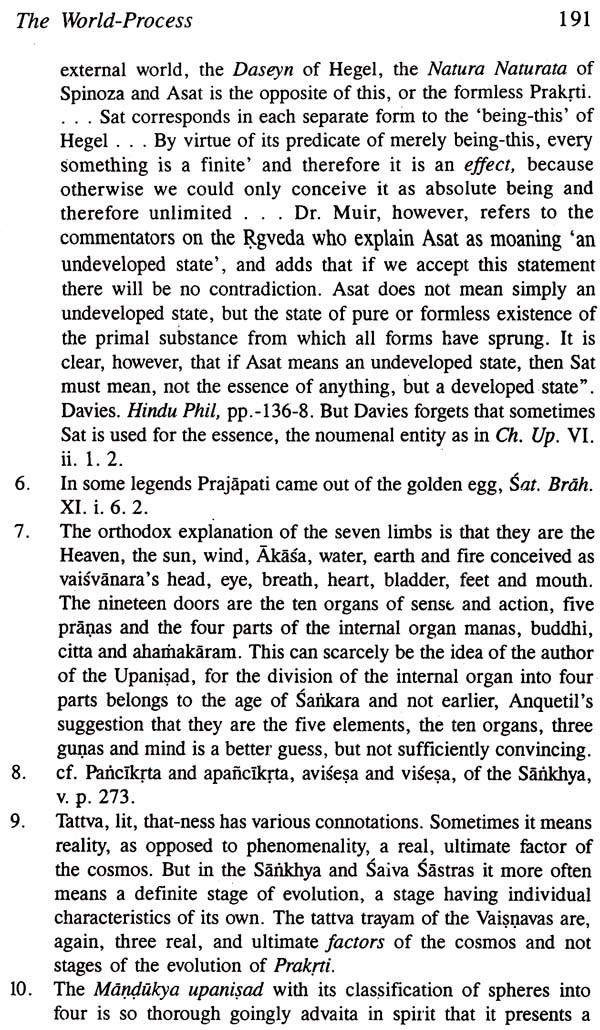
Outline of Indian Philosophy
Book Specification
| Item Code: | AZE711 |
| Author: | P.T. Srinivasa Iyengar |
| Publisher: | Bhartiya Kala Prakashan |
| Language: | ENGLISH |
| Edition: | 2008 |
| ISBN: | 9788180901874 |
| Pages: | 226 |
| Cover: | HARDCOVER |
| Other Details | 9.00x6.00 |
| Weight | 390 gm |
Book Description
This also speaks about param Brahma, Vedanta sūtras, sänkhya, puruşa, prakṛti, gunas, draşta and drasya, isvara in yoga, māya, sakti, advaita, the mīmāmsā, arthavada, apurva, etc. In addition to it, Supreme Reality, the theory of Coinhesence, ahaṁkāra, tanmatra, the fluxes, sṛsti, vidya tattvas, atma tattvas, Śiva tattva and hinarchics of Devis, etc. are also the important topics of the book.
In short, the book will certainly prove to be very useful for the readers.
In doing so, I have attempted to discuss the ideas of the earliest available exposition of each school. In India, thinkers, however independent they may be, whatever new vistas of thought they may open up, are compelled by inexorable orthodoxy to father their opinions on the ancients. The boldest thinker this country has produced, Sankara, felt it necessary to seek the sanction of orthodoxy by deriving his new ideas from the old Brahma Sutras and the older Upanisads. Being a philosopher, he had to pretend to be a scholiast.
**Contents and Sample Pages**

